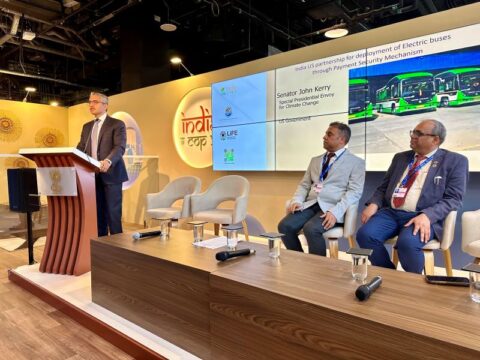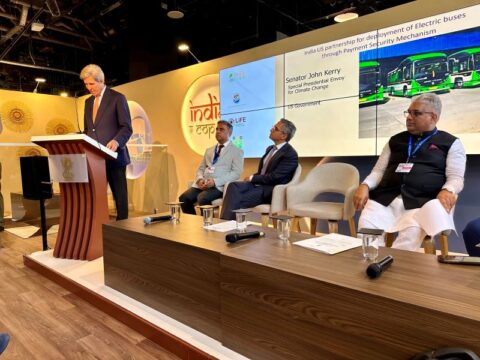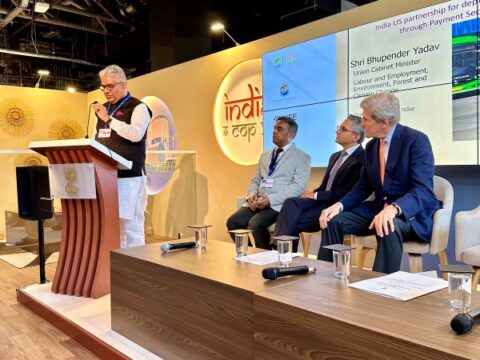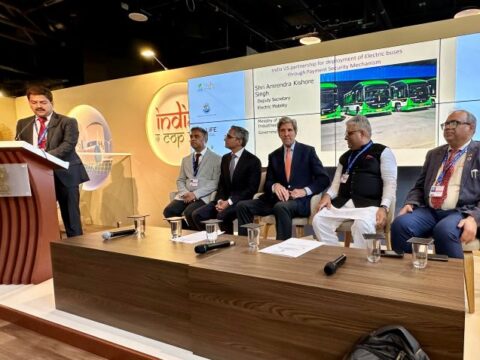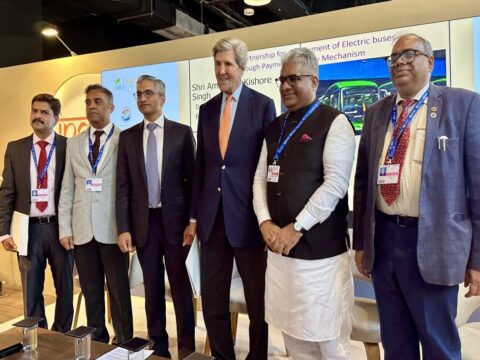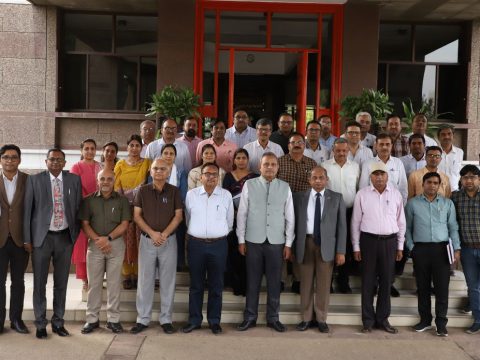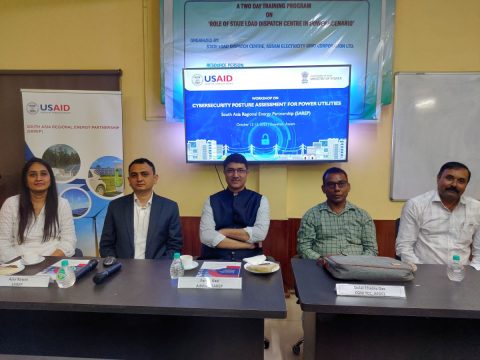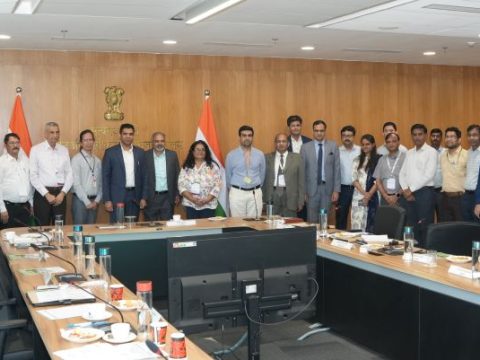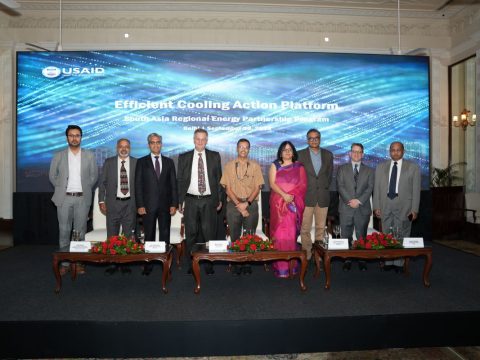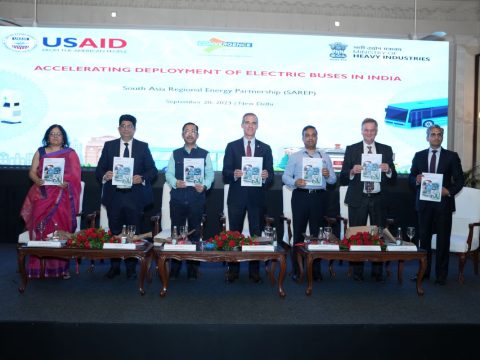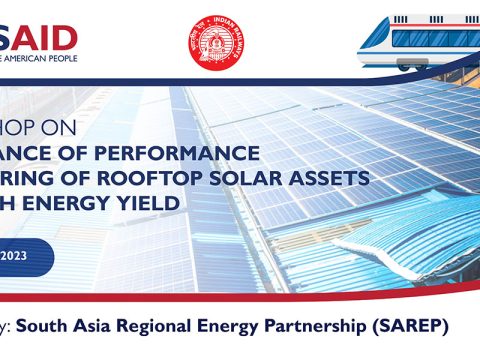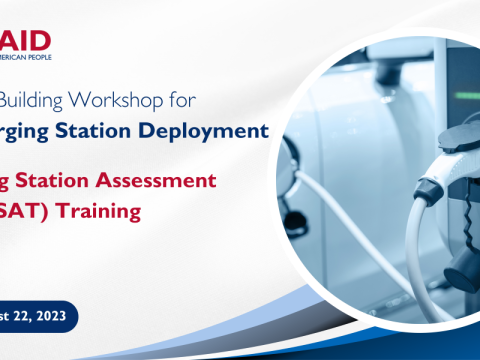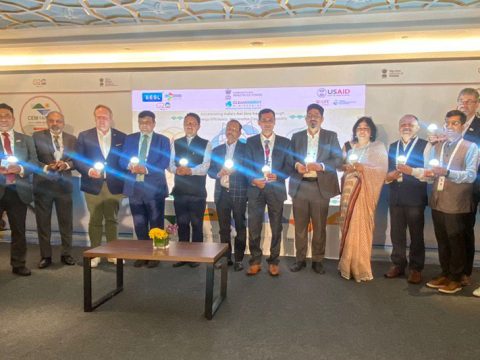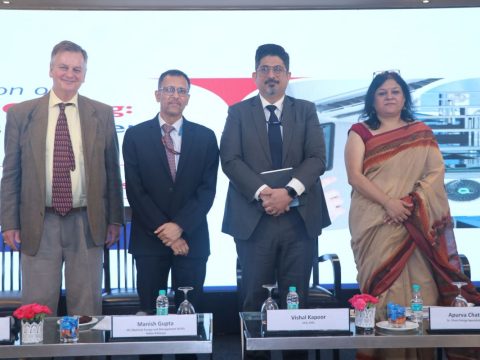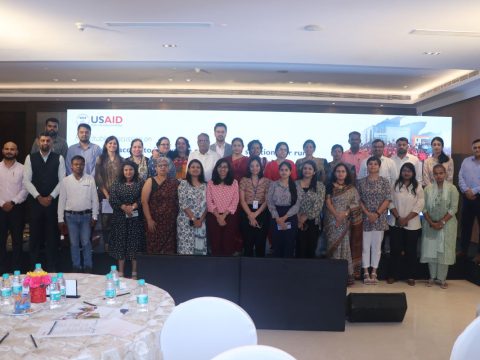India
January 8, 2024
Electrification of public transport will play a key role in mitigating pollution and contribute to India’s 2070 net-zero commitment. India’s National Electric Bus Program aims to deploy 50,000 e-Buses by […]
January 8, 2024
The Green Power 2023 Summit, hosted by the Confederation of Indian Industries Green Building Council (CII-GBC), was held in Hyderabad on December 4-5, 2023, and was graced by distinguished speakers […]
November 11, 2023
Continuing the effort to strengthen clean energy deployment and utility modernization, USAID’s SAREP program, in collaboration with the Ministry of Power, conducted a capacity-building workshop for the officials of Madhya […]
October 26, 2023
To address the pressing issue of cybersecurity in the energy sector, USAID, through its SAREP program, organised a workshop on ‘Cybersecurity Posture Assessment for Power Utilities’ in Assam on October […]
October 5, 2023
On September 27, 2023 USAID through SAREP convened a workshop titled ‘Green Ammonia for Fertilizer Manufacturers’ at the Ministry of New and Renewable Energy (MNRE), focusing on Green Ammonia’s significance […]
September 29, 2023
Global call for action is necessary for facilitating the widespread adoption of sustainable solutions to cater to the rising cooling demand. In this context, developing a platform for efficient cooling […]
September 26, 2023
In a significant step towards sustainable and eco-friendly transportation, the Government of India announced NEBP with a vision to deploy 50,000 electric buses in India by 2027. This is a […]
September 3, 2023
On August 31, 2023, USAID’s SAREP program organized a virtual workshop on the ‘Importance of Performance Monitoring of Rooftop Solar Assets for High Energy Yield’ for the Indian Railways. The […]
August 24, 2023
USAID through its SAREP Program aims to facilitate targeted action and drive systemic change by supporting key stakeholders on electric mobility initiatives. Moreover, the Government of India (GoI) launched, the […]
August 1, 2023
USAID’s South Asia Regional Energy Partnership (SAREP) Program joined forces with Energy Efficiency Services Limited (EESL) and hosted an event on “Accelerating India’s Net Zero Transition through Energy Efficiency, Sustainable […]
August 1, 2023
USAID through its South Asia Regional Energy Partnership (SAREP) Program hosted “DAKSHTA (Drive for Advancing Knowledge and Solutions Through Aggregation) in Energy Efficiency: India’s Experience for a Global Energy Efficiency […]
July 18, 2023
USAID, through its South Asia Regional Energy Partnership (SAREP) program in collaboration with Energy Efficiency Services Limited (EESL) organized an industry consultation on ‘Super-Efficient Cooling: Enabling India’s Net Zero Transition’ […]
July 18, 2023
USAID’s flagship regional energy program, The South Asia Regional Energy Partnership (SAREP) emphasizes on gender equality and social inclusion as a cross cutting theme to meet its technical objectives of […]
July 18, 2023
USAID, through its South Asia Regional Energy Partnership (SAREP) program, in association with the Ministry of New and Renewable Energy (MNRE), organized a national workshop on ‘Exploring Virtual Power Purchase […]
July 17, 2023
The United States Agency for International Development (USAID), through its South Asia Regional Energy Partnership (SAREP) program, has been working to enhance the development and operational capacity of transmission utilities. […]

